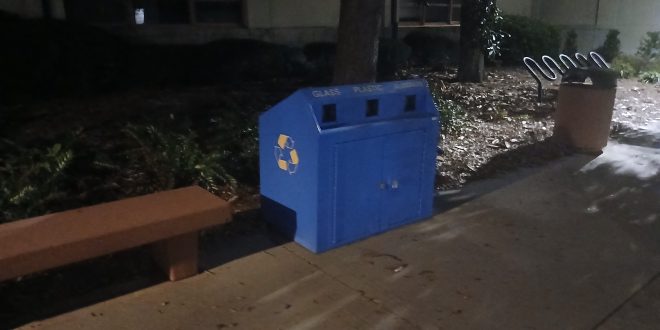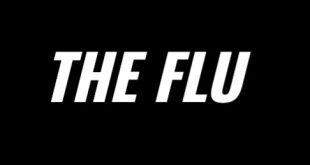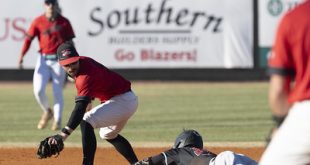Written by Jenna Arnold, Editor-in-Chief.
Anyone walking around VSU’s campus and through its buildings might run across blue containers marked for various types of waste to be recycled – paper, plastic or aluminum. One might assume that waste would end up at a recycling plant.
But the waste deposited in those recycling bins scattered around VSU’s campus go to the same destination as normal trash. According to the VSU website, a $29,000 investment in recycling was made. However, it was abandoned years later and never publicly addressed.
The 1990 Georgia Solid Waste Management Act mandates the University System of Georgia to “practice waste minimization and pollution prevention by adopting recycling programs for all appropriate materials, purchasing recycled products, substituting less hazardous materials and establishing micro-scale chemistry operations.”
The first documented concern regarding the validity of VSU’s recycling program was Oct. 3, 2013. During an Environmental Issues Committee Meeting, Lynn Adams and Theresa Grove, both appointed members during the time, brought forth their concerns of mixing recycling waste with regular trash.
“L. Adams asked whether recycling was occurring when all bags were thrown into one dumpster. T. Grove said the same thing is happening at Bailey,” as recorded in the meetings minutes.
Dr. Thomas Aiello, professor of History and Africana Studies, learned about the false use of recycling bins during an environmental committee meeting this past fall semester.
“The bulk of trash on campus is all lumped together and not sent to a recycling facility. It is just combined and discarded as non-recycled garbage,” Dr. Aiello said.
He disagrees with advertisements for recycling bins if they are just trash cans with a logo.
“I think any institution that places containers on campus with recycling logos is inherently entering an agreement with those who work and live there that the effort they take to place recyclable trash in the proper bins will be rewarded,” he said. “The presence of those containers is a promise, one that has apparently been broken.”
Dr. Deborah Hall, an associate professor of English and former Environmental Committee chair, said there were concerns five years ago of the validity of recycling.
“We were concerned about the mixing of recycled materials with regular waste back when I was chairing the EIC,” said Dr. Hall.
Raymond Sable, the director of Physical Plant and Facilities Planning, said that VSU struggles with upkeeping recycling because of hurricanes and other events.
“We have had a lot of problems organizing recycling efforts for the last two years, since Idalia,” said Sable. “The city stopped taking recycling for several months following each hurricane.”
Sable reemphasized the goal to increase recycling this year as he is in charge of ensuring that the process is undergone.
“Our 2025 plant goals include a plan to improve our internal processes so that we can schedule at least monthly transportation to the recycling site,” Sable said. “We have gotten off to a slow start with the IT outage and the time off for freezing and snowy weather, but this month, we are organizing to collect recycling and transport it to the city collection sites on Wednesday.”
He sent proof of recycling for the month by submitting a photo of one bag and two empty boxes in front of the recycling plant.
In contrast, in February of 2014, a VSU fraternity created a recycling contest as a service project. In April of 2014, 161 bags of recyclable materials were collected after seven weeks.
According to the VSU website, the city of Valdosta donated a “Sway Car,” and it was originally picked up every 2-3 weeks. The city also donated barrels to help separate the different materials, as well as a dumpster for cardboard items.
“If the containers aren’t being used for their purpose, then those who use them are being defrauded on the action itself and on the money used to create the fraud in the first place, even if their original placement was in good faith,” said Dr. Aiello.
Ray Petty, a junior biology major, said this news was not shocking given the history of other businesses.
“I’m honestly not surprised,” said Petty. “A lot of places, whether it’s a business or a school, won’t put in the little bit of extra effort. It just sucks that they pretend to.”
Mallory Poole, a freshman elementary education major, feels personally affected by not having recycling options on campus.
“It’s heartbreaking that the community doesn’t understand their impact by throwing recycling in the trash bins.”
Photos by Chris Mercer and Raymond Sable.
 The Spectator The independent student newspaper of Valdosta State University
The Spectator The independent student newspaper of Valdosta State University






